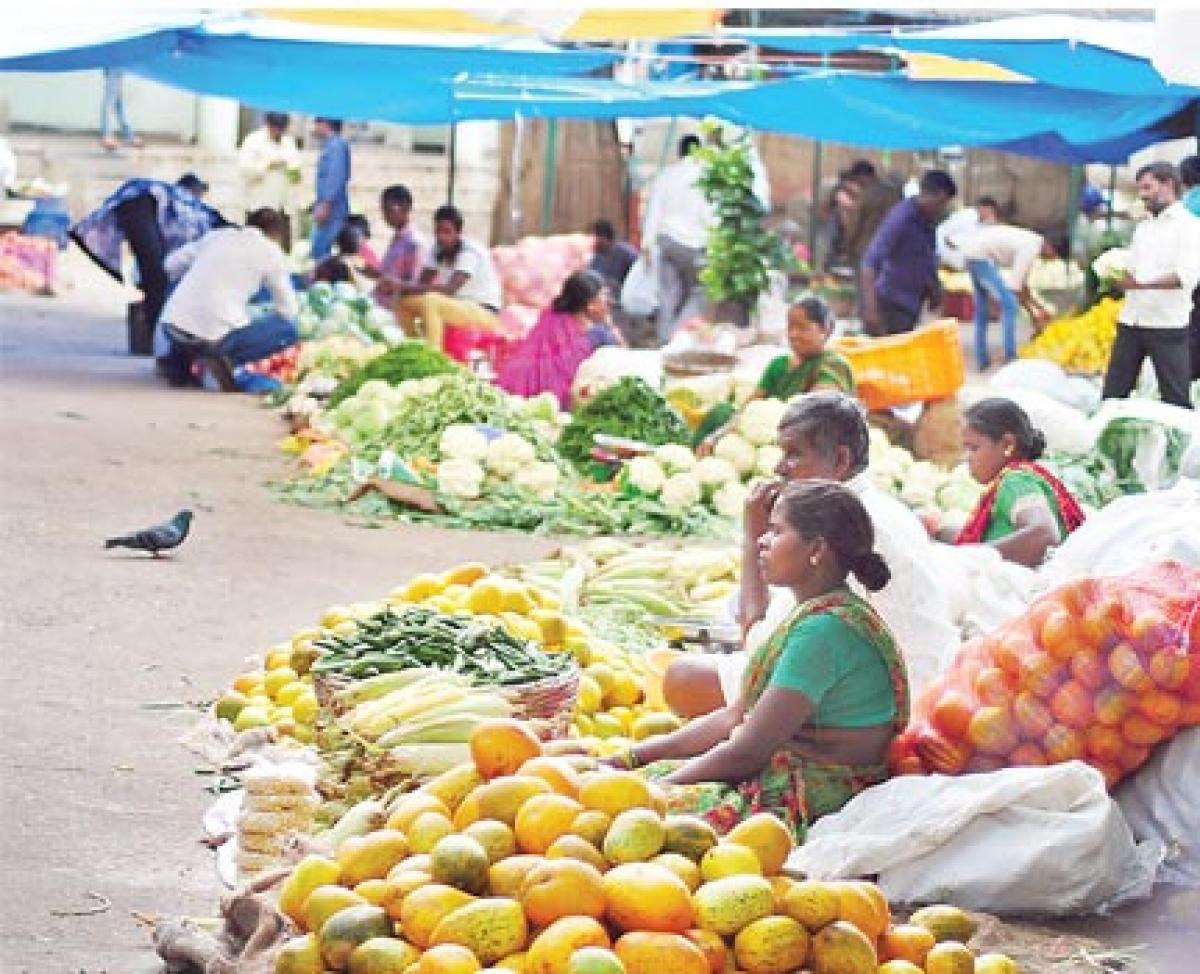Vegetables-troubles citizens shun Rythu Bazars

While the daily price lists are prepared at Bowenpally market for the City Rythu Bazars, they are not being implemented or enforced by the supervisors or the estate officials responsible for maintaining the markets. Most of the vegetables, which are consumed regularly, are sold at an increased price.
Hyderabad: With the prices of vegetables being sold at Rythu Bazar not encouraging, people now prefer to buy veggies from local vendors to save time and money. Though the official price list is displayed, vegetables at Rythu Bazar are sold at 30% to 50% premium.
While the daily price lists are prepared at Bowenpally market for the City Rythu Bazars, they are not being implemented or enforced by the supervisors or the estate officials responsible for maintaining the markets. Most of the vegetables, which are consumed regularly, are sold at an increased price.
For instance tomatoes, the price of which is fixed as Rs 7, is being sold between Rs 12 and 15, brinjal is being sold for Rs 30, when the official price is R 23.
While ladies finger is being sold at Rs 20, when the official price is Rs 12, the price of bottle gourd is not even mentioned, when it is being sold at Rs 20. Ginger and garlic are priced at Rs 80 and 140 per kg respectively, which are no different from any kirana shop.
I bought 2 kg of tomatoes for Rs 10 a kg, which is much less than the price at Rythu Bazar. When the vegetable prices are under control, people are preferring local markets,” said T Mohan, a resident of Mehdipatnam, who prefers to buy from vendors.
Most of the Rythu Bazars which were opened in the late 90s are slowly losing the sheen, as these markets are only preferred by people who stay close to the locality or visiting it with the intention of a rare vegetable or fruit, which is not available in the market.
According to some observers, the markets which were opened with the intention of avoiding middlemen and for direct access of farmers to consumers, have slowly become a haven for the same middlemen.
Some influential men controlling the market have transformed these markets into general markets, where the pricing and issuing of licence is reduced to a formality. When the trader in the Rythu Bazar is no different from the neighbourhood vendor, who procure vegetables from the same Monda market, then there is obviously no major difference. Moreover, the trader at Rythu Bazar aims at a bigger margin,” says K Srikanth, a roadside fruit vendor at Erragadda Rythu Bazar.
However, the officials refuted that there was any price variation in vegetables and assured of taking action against the traders involved in malpractice. “We are controlling the prices in Rythu Bazars. However, if anything like this is brought to our notice we shall take strict action and their licence would be cancelled,” said P Ramesh, Estate Officer, Erragadda Rythu Bazar.
The official added that about 40 per cent traders in the Rythu Bazars represent Self Help Groups, setup under the government norms. The remaining are farmers, who are provided licence by MRO or VRO. He claimed that none of the produce is from the City’s market, but from villages. “If anyone is found selling produce of local markets, they would be penalised,” he added.














